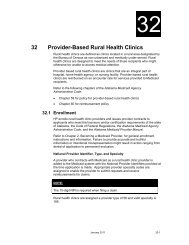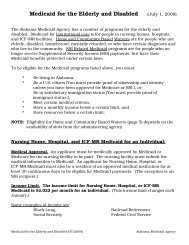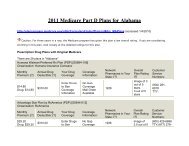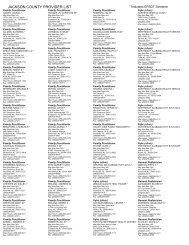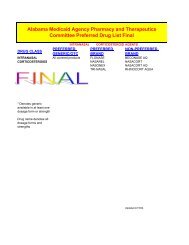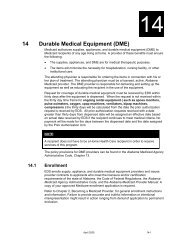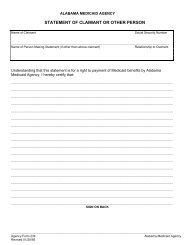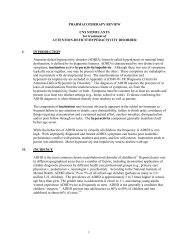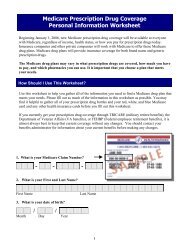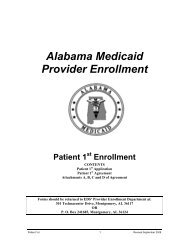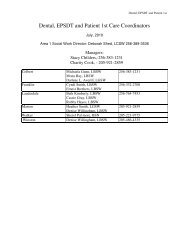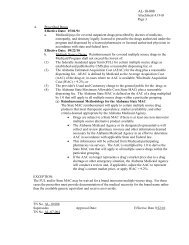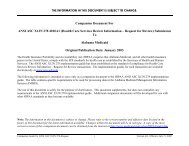Chapter 106 Targeted Case Management - Alabama Medicaid Agency
Chapter 106 Targeted Case Management - Alabama Medicaid Agency
Chapter 106 Targeted Case Management - Alabama Medicaid Agency
- No tags were found...
Create successful ePaper yourself
Turn your PDF publications into a flip-book with our unique Google optimized e-Paper software.
<strong>Targeted</strong> <strong>Case</strong> <strong>Management</strong>Recipients with related conditions are individuals who have a severe chronicdisability described by all of the following criteria:• Attributable to Cerebral palsy or epilepsy; or any other condition, otherthan mental illness, found to be closely related to mental retardationbecause this condition results in impairment of general intellectualfunctioning or adaptive behavior similar to that of mentally retardedpersons, and requires treatment or services similar to those required forthese persons• Likely to continue indefinitely• Results in substantial functional limitations in three or more of thefollowing areas of major life activity:−−−−−Self-careUnderstanding and use of languageLearningMobilitySelf-direction or capacity for independent livingSeriously Emotionally DisturbedA recipient is considered seriously emotionally disturbed if they meet at leastone criterion from column 1, Mental Health Treatment History, or 2, Indicatorsor Mental Health Treatment Needs, and two criteria from column 3, CurrentFunctioning Problem Areas.Mental Health TreatmentHistoryHas undergone mentalhealth treatment moreintensive than outpatientcare (emergency servicesor inpatient services)Has experiencedstructured, supportiveresidential treatment, otherthan hospitalization, for atotal of at least two monthsin their lifetimeHas been assigned to aprogram of psychotropicmedicationHas received mental healthoutpatient care for a periodof at least six months, or formore than 20 sessions, orhas been admitted fortreatment on two or moreoccasionsIndicators of Mental HealthTreatment NeedsFamily history of alcohol or drugabuseFamily history of mental healthtreatmentFailure to thrive in infancy orearly development indicated inmedical recordsVictim of child abuse, neglect,or sexual abusePervasive or extreme acts ofaggression against self, others,or property (homicidal orsuicidal gestures, fire setting,vandalism, or theft)Runaway episode(s) of at least24 hours’ durationCurrent FunctioningDoes not attend school (andhas not graduated), is enrolledin a special educationcurriculum, or has poor gradesDysfunctional relationship withfamily and peersRequires help in basic, ageappropriateliving skillsExhibits inappropriate socialbehaviorExperiences seriousdiscomfort from anxiety,depression, irrational fears,and concerns (indicated byserious eating or sleepingdisorders, extreme sadness,or social isolation)<strong>106</strong>-8 January 2011



